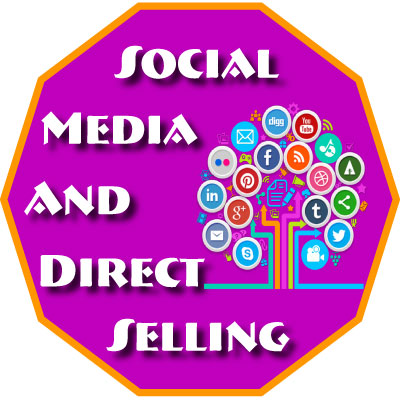 When I attended the Direct Selling Association’s “Communications and Internet Marketing Seminar” last month in Las Vegas, the focus of the conference was Social Media and its impact on direct selling businesses. This was a timely topic, as evidenced by the seminar record of 300+ attendees.
When I attended the Direct Selling Association’s “Communications and Internet Marketing Seminar” last month in Las Vegas, the focus of the conference was Social Media and its impact on direct selling businesses. This was a timely topic, as evidenced by the seminar record of 300+ attendees.
In their policies and procedures, direct selling companies have traditionally imposed rules that restrict both the content and mediums of messages shared by representatives about their companies.
For example, representatives have been prohibited from creating their own product and income opportunity literature and advertising the income opportunity on websites other than those provided by the company. Social media is the force that is turning things upside down.
Gen Y’ers, those born between 1974 and the late 1990s, use social media like Gen X’ers, Baby Boomers and predecessors used the telephone. To attract and retain them as independent representatives, the old rules absolutely limiting expression without consideration for social media simply won’t work.
While before policies and procedures specified clearly what representatives can say and where they can say it, today’s policies and procedures need to address social media and be clear on what independent representatives absolutely cannot do. The rest is OK!
At the conference, people asked about “best practices” in using social media. Many presenters responded by saying, “Best practices? These are new issues. I can’t say what’s best, but I can tell you what our company is doing.”
Here are some Social Media policies that direct selling companies have implemented:
- Consultants are permitted to discuss their independent rep businesses on blogs, Facebook, YouTube, LinkedIn, MySpace, etc.
- All content must be spell-checked.
- Consultants must represent themselves accurately.
- All misleading or deceptive activities and tactics are prohibited.
- Links to websites must display the true locations.
- Consultants must always identify themselves as independent consultants of the company, and not the company itself.
- Consultants may use the “independent consultant logo”, not the company logo.
- No cursing is permitted.
- No personal attacks are permitted.
- Consultants may not post their personal contact information on the company’s Facebook page.
- Paid Internet advertising is prohibited, but free ads are OK.
- Each consultant may have one external website promoting his or her independent rep business.
- Content about the company, including the independent consultant logo, cannot appear on the same web page where another income opportunity is promoted.
- If the consultant is no longer working the income opportunity, the external web page promoting the business must be taken down.
- If a consultant has a complaint with the company, contact the company for resolution. Don’t use social media to express your grievances publically. Many of the people who read your grievance won’t know when it is resolved, so they will be left with bad unresolved feelings that may never be corrected. Truly, publicly aired grievances harm everyone.
- Prices of products may not be discounted.
- eBay and other auction sites may not be used to sell the company’s products or services.
Warning! The list above is incomplete! Social media is continuing to evolve. Stay informed on social media trends and other emerging technologies so that you can continue to amend your policies and procedures as needed.

 Jay Leisner, the President of Sylvina Consulting, is a top compensation plan and direct selling expert, a trusted adviser to new and established network marketing and party plan companies. For more than 30 years, Jay has enjoyed assessing and improving network marketing, party plan and referral marketing companies across the globe.
Jay Leisner, the President of Sylvina Consulting, is a top compensation plan and direct selling expert, a trusted adviser to new and established network marketing and party plan companies. For more than 30 years, Jay has enjoyed assessing and improving network marketing, party plan and referral marketing companies across the globe.
Larae Siar says
Thank you for this info! I enjoyed it.